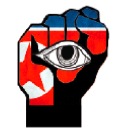Please click on this link for the photo gallery from this event.

The Committee for Human Rights in North Korea (HRNK) launched the 130-page report, Coercion, Control, Surveillance, and Punishment: An Examination of the North Korean Police State, on July 19 at the Korea Economic Institute (KEI).
Authored by North Korean leadership specialist Ken E. Gause, Coercion, Control, Surveillance, and Punishment reveals that the Kim family created a pervasive state security apparatus to consolidate power, relying on constant surveillance and a network of informants to root out threats to the regime from the smallest neighborhoods to the highest levels of the military.
The report rollout, moderated by Greg Scarlatoiu, HRNK Executive Director, also featured remarks by discussants Chuck Downs, former HRNK Executive Director, Helen-Louise Hunter, HRNK Board Member, and Kim Kwang-jin, HRNK Non-Resident Fellow.
SPEAKER BIOS:
Ken Gause, the report author, is a senior research analyst with CNA Strategic Studies’ International Affairs Group and Iranian Studies Program. He oversees CNA’s work on foreign leadership studies and is expert on leadership issues concerning North Korea. Mr. Gause began his career as a leadership analyst with the U.S. government, posted for three years in Moscow. Since the mid-1980s, he has worked for a number of defense-related think tanks, where he has strived to push the boundaries of leadership analysis. Prior to joining CNA in 1999, Gause was Director of Research for Keesing’s Worldwide Directory of Defense Authorities. Mr. Gause holds a B.A. in Political Science and Russian from Vanderbilt University, and earned an M.A. in Soviet and East European Affairs from George Washington University.
Chuck Downs was HRNK Executive Director from 2008 to 2011 and Board member from 2001 to 2008. He authored Over the Line: North Korea’s Negotiating Strategy while serving as Associate Director of the Asian Studies Program at the American Enterprise Institute. Mr. Downs served for most of his career in the Pentagon, as Deputy Director for Regional Affairs and Congressional Relations in the Pentagon’s East Asia Office. Mr. Downs was also Senior Defense and Foreign Policy Advisor to the House Policy Committee of the U. S. House of Representatives. As a Senior Fellow at the National Institute for Public Policy he chaired the North Korea Working Group, providing policy recommendations to the Office of the Secretary of Defense. Mr. Downs graduated with honors in political science from Williams College in 1972.
Helen-Louise Hunter, member of HRNK’s Board and Executive Committee, is an attorney who has engaged in private practice with a large international law firm in Washington, D.C., and has served as Permanent Law Clerk in the U.S. District Court for the District of Maryland. For more than 20 years, she was a Far East specialist at the Central Intelligence Agency. In the late 1970s, she served as the Assistant National Intelligence Officer for the Far East. She is the author of Kim Il-song’s North Korea (1999).
Kim Kwang-jin is a North Korean defector and former DPRK international finance agent. An HRNK non-resident fellow, Mr. Kim is currently a resident senior fellow at the Institute for National Security Strategy (INSS) in Seoul, South Korea and HRNK non-resident fellow. Mr. Kim is an invaluable experienced resource shedding light into the darkest corners of the North Korean regime’s secret and illegal international financial operations. His revelations have saved re-insurance companies tens of millions of dollars and brought an end to an important method the corrupt regime employed to earn from foreign sources the funds it needed to maintain its internal oppression. Mr. Kim holds an MBA in Finance and Insurance from Kookmin University (Seoul, 2012), a Masters in Economics/IT of North Korea at the University of North Korean Studies (Seoul, 2008), a Degree in British Literature from Kim Il-sung University (Pyongyang, 1989), and a Degree in English from the Pyongyang Foreign Language Institute (1984). Working for the North Korean regime, Mr. Kim served as Singapore Representative of North East Asia Bank (2002-2003); an agent of the Korean Foreign Insurance Company and North East Asia Bank, Pyongyang, (2000–2002); a manager of the Foreign Trade Bank of DPRK (1999), and Professor of the Pyongyang Computer College (1991–1997). He has produced a number of publications on the North Korean economy and the current power transition in North Korea, including two HRNK reports.



